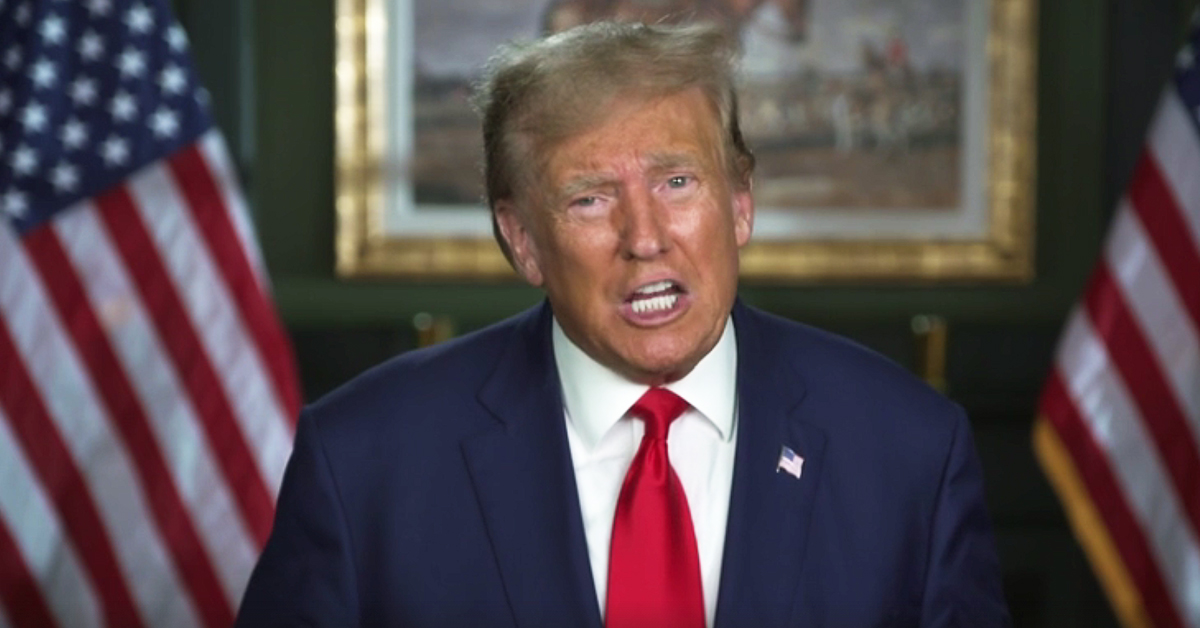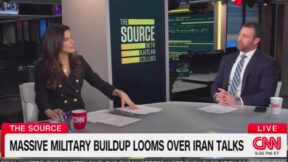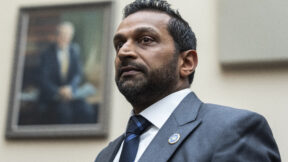Trump Told General Milley to Banish Wounded Military Veteran From Events: ‘No One Wants to See That’

A new profile on General Mark Milley delved into his efforts to preside over the military in the last few years despite his numerous concerns with former President Donald Trump.
The Atlantic’s editor-in-chief, Jeffrey Goldberg’s revealing profile was published on Thursday, and touched on how the Chairman of the Joint Chiefs of Staff formulated his opinion on Trump and how he dealt with the “cognitive unfitness and moral derangement” he saw from the ex-commander in chief.
Milley was presented as struggling to push against Trump’s darkest impulses and maintain the military’s various safeguards if Trump ever forced him to choose between himself and the Constitution.
The profile offered several examples of Milley’s exasperation with Trump’s behavior, one of which occurred during Milley’s welcome ceremony, where he got a “disturbing insight” into Trump’s callous attitude toward soldiers.
From The Atlantic:
Milley had chosen a severely wounded Army captain, Luis Avila, to sing “God Bless America.” Avila, who had completed five combat tours, had lost a leg in an IED attack in Afghanistan, and had suffered two heart attacks, two strokes, and brain damage as a result of his injuries. To Milley, and to four-star generals across the Army, Avila and his wife, Claudia, represented the heroism, sacrifice, and dignity of wounded soldiers.
It had rained that day, and the ground was soft; at one point Avila’s wheelchair threatened to topple over. Milley’s wife, Hollyanne, ran to help Avila, as did Vice President Mike Pence. After Avila’s performance, Trump walked over to congratulate him, but then said to Milley, within earshot of several witnesses, “Why do you bring people like that here? No one wants to see that, the wounded.” Never let Avila appear in public again, Trump told Milley. (Recently, Milley invited Avila to sing at his retirement ceremony.)
The anecdote comes after reporters Susan Glasser and Peter Baker claimed in their book, The Divider, that Trump took a disdainful view of wounded soldiers and didn’t want them to be displayed in events celebrating the military. Trump was reported telling John Kelly, “I don’t want any wounded guys” to be featured in a military parade he called for years ago, and he dismissed the protests from the former White House chief of staff.
Another problematic situation Milley found himself in was when he had to try explaining the concept of war crimes to Trump while the former president was intervening in the case of Navy SEAL Eddie Gallagher.
Late one night, on Air Force One, Milley tried to convince Trump that his intrusion was damaging Navy morale. They were flying from Washington to Dover Air Force Base, in Delaware, to attend a “dignified transfer,” the repatriation ceremony for fallen service members.
“Mr. President,” Milley said, “you have to understand that the SEALs are a tribe within a larger tribe, the Navy. And it’s up to them to figure out what to do with Gallagher. You don’t want to intervene. This is up to the tribe. They have their own rules that they follow.”
Trump called Gallagher a hero and said he didn’t understand why he was being punished.
“Because he slit the throat of a wounded prisoner,” Milley said.
“The guy was going to die anyway,” Trump said.
Milley answered, “Mr. President, we have military ethics and laws about what happens in battle. We can’t do that kind of thing. It’s a war crime.” Trump answered that he didn’t understand “the big deal.” He went on, “You guys”—meaning combat soldiers—“are all just killers. What’s the difference?”
New: The Mediaite One-Sheet "Newsletter of Newsletters"
Your daily summary and analysis of what the many, many media newsletters are saying and reporting. Subscribe now!






Comments
↓ Scroll down for comments ↓